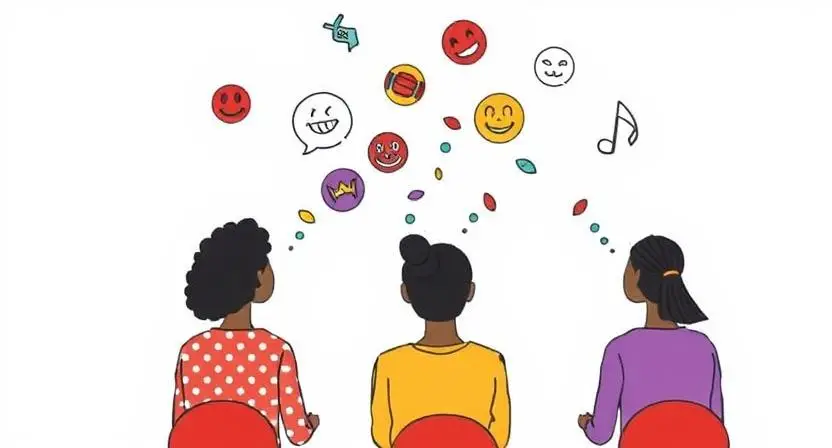Cultural practices play a significant role in how individuals experience and manage stress. Stress, a universal human experience, is perceived and managed in vastly different ways across cultures. Understanding these differences offers valuable insights into how people cope with stress, anxiety, and emotional challenges. Cultural frameworks shape both the perception of stress, and the strategies used to alleviate it.
The Role of Culture in Shaping Stress Responses
How Different Cultures Perceive Stress
Cultural context significantly impacts how stress is perceived and responded to. While stress is a common human experience, what triggers stress and how it is managed varies based on cultural beliefs, values, and social norms. In Western societies, stress is often linked to individual achievement and personal performance, while in many Eastern cultures, stress may be related to the harmony of the group or community. These differences stem from the broader cultural orientation towards individualism or collectivism, which affects how stress is viewed and dealt with.
Western Individualism vs. Eastern Collectivism
In Western cultures, particularly in the United States and Europe, stress is often viewed through the lens of individualism. Success, personal achievement, and autonomy are highly valued, and stress can arise from perceived failure or inability to meet personal goals. Stress management tends to be focused on individual solutions, such as therapy or self-care practices.
Conversely, in Eastern cultures, such as those found in Japan, China, and India, the concept of collectivism is more prominent. The well-being of the community or family is prioritized over individual needs. Stress is often seen as a result of imbalance within the group, and therefore, coping mechanisms tend to emphasize social harmony, familial support, and group cohesion.
Stress as a Personal vs. Communal Experience
In cultures with an individualistic mindset, stress is often seen as a personal challenge that must be managed alone. This may lead to a greater reliance on self-help techniques, such as therapy, exercise, or mindfulness practices.
However, in communal cultures, stress is viewed as a collective experience, where the well-being of the individual is intertwined with the well-being of the group. Stress management in these cultures often involves the support of family, friends, and the community, with a strong emphasis on shared emotional experiences and collective healing practices.

Cultural Beliefs and Their Impact on Stress Coping Mechanisms
Cultural beliefs not only shape how stress is perceived but also how it is coped with. Each culture offers a unique set of coping mechanisms based on religious, spiritual, and traditional practices.
Spiritual and Religious Influences on Stress Relief
Spirituality and religion play a significant role in stress management across many cultures. In cultures where religious practices are central to daily life, prayer, rituals, and religious guidance are often used to alleviate stress. For example, in Christianity, prayer and faith are often seen as ways to manage anxiety and stress. Similarly, Islamic practices, such as daily prayer (Salat), provide structure and solace for managing stress.
In Hinduism and Buddhism, stress relief is often found through spiritual practices such as meditation and yoga, which are designed to create mental and physical balance.
Superstitions and Traditional Healing Practices
In addition to religious and spiritual practices, many cultures also rely on traditional healing practices and superstitions to manage stress. For instance, in parts of Latin America, curanderismo (traditional healing) includes rituals, herbal remedies, and spiritual guidance to alleviate stress. In some African cultures, stress relief is achieved through the use of sacred herbs, dances, and ancestral rituals.
Traditional Cultural Practices for Stress Relief Around the World
Mindfulness and Meditation in Eastern Cultures
Eastern cultures have long recognized the connection between the mind and body in managing stress. Mindfulness, meditation, and yoga are central practices for reducing stress in many Asian cultures.
Buddhist Meditation (Japan, Thailand)
In Japan and Thailand, Buddhist meditation is an ancient practice designed to calm the mind, reduce anxiety, and promote emotional balance. Practices like Zazen (seated meditation) in Japan and Vipassana (insight meditation) in Thailand focus on mindfulness, breath control, and awareness to alleviate stress.
Yoga and Ayurveda (India)
Yoga, an integral part of Indian culture, is a powerful tool for stress management. Through physical postures, controlled breathing, and meditation, yoga enhances mental clarity and physical health, reducing stress and promoting relaxation. Ayurveda, the traditional system of medicine in India, complements yoga by offering herbal remedies and lifestyle practices to balance the body’s energies.
Community-Based Stress Management in African and Latin American Cultures
In many African and Latin American cultures, community plays a crucial role in stress relief. Social bonds, collective rituals, and communal activities help manage stress and emotional challenges.
Ubuntu Philosophy (Southern Africa)
In Southern Africa, the philosophy of Ubuntu emphasizes interconnectedness and the importance of community. “I am because we are” is the core belief of Ubuntu, and it suggests that individual well-being is tied to the health of the community. This communal approach to stress relief fosters a sense of belonging and emotional support, alleviating feelings of isolation and anxiety.
La Sobremesa – The Power of Mealtime Bonding (Latin America)
In Latin American cultures, the practice of “la sobremesa,” or lingering at the table after a meal, is a cherished tradition. This communal activity provides time for family and friends to relax, bond, and discuss their day. This tradition fosters emotional connection, reduces stress, and helps to maintain strong social networks.
Rituals and Ceremonies for Emotional Release
Many cultures have developed rituals and ceremonies to help individuals release emotional tension and manage stress. These rituals are often seen as spiritual or therapeutic practices that promote healing and inner peace.
Native American Sweat Lodges
Native American cultures have long utilized sweat lodges for physical and spiritual cleansing. These ceremonies involve sitting in a heated, enclosed space, which promotes sweating and detoxification. The ritual is designed to clear the mind and body of stress, providing a deep sense of renewal and spiritual connection.
Scandinavian "Hygge" for Cozy Comfort
In Scandinavian cultures, the concept of “Hygge” (pronounced hoo-gah) refers to creating a sense of cozy contentment, often through simple pleasures like lighting candles, enjoying warm beverages, or spending time with loved ones. This practice promotes relaxation and stress relief through comfort and emotional well-being.
Modern Adaptations of Cultural Stress Management Techniques
How Globalization is Blending Cultural Stress Relief Methods
With globalization, cultural practices for stress management are increasingly blending and influencing one another. Mindfulness, once a traditional Buddhist practice, is now commonly used in Western psychotherapy. Similarly, yoga and Ayurveda have found widespread popularity in Western wellness communities.
The Rise of Mindfulness Apps with Eastern Influence
Mindfulness apps, which are rooted in Eastern practices like meditation and mindful breathing, have become widely accessible worldwide. These apps help users manage stress by offering guided meditations, breathing exercises, and other techniques derived from Eastern traditions.
Western Therapy Incorporating Indigenous Wisdom
Western therapists are increasingly incorporating indigenous healing practices and mindfulness techniques into their approaches. This fusion of Western psychology and traditional wisdom helps individuals address stress and mental health challenges from a holistic perspective.
Scientific Backing for Traditional Stress-Relief Practices
As traditional stress-relief practices become more popular, scientific research is beginning to confirm their effectiveness. Studies have shown that meditation can positively impact brain health, reducing anxiety and improving emotional regulation.
Studies on Meditation and Brain Health
Research on mindfulness meditation has shown that it can enhance brain function, reduce stress hormones, and promote a sense of calm. Studies have demonstrated that regular meditation can reduce the size of the amygdala, the part of the brain responsible for stress and fear, leading to improved emotional resilience.
The Psychological Benefits of Community Support
Studies on community-based stress management practices, such as group therapy and social bonding activities, have shown that strong social networks and emotional support are crucial in reducing stress and promoting mental well-being.
How to Incorporate Cultural Stress Management into Your Life
Learning from Different Cultures Without Appropriation
While it is valuable to learn from other cultures, it is essential to approach these practices with respect and mindfulness, avoiding cultural appropriation. Understanding the deeper meanings behind practices such as meditation, yoga, or communal rituals is key to incorporating them in a culturally respectful manner.
Respectfully Adopting Practices
If you are interested in adopting cultural stress-management practices, consider studying their origins and seeking guidance from practitioners within those cultures. This will help you integrate these techniques authentically and mindfully.
Finding Local Alternatives with Similar Benefits
If adopting practices from other cultures doesn’t resonate with you, look for local or regional alternatives that offer similar stress-relief benefits. Many cultures have their own unique approaches to stress management, such as nature walks, physical activities, or creative hobbies.
Creating a Personalized, Culturally-Inspired Stress Relief Plan
By incorporating techniques from different cultures, you can create a personalized plan for managing stress. Combining yoga, mindfulness, community-based activities, and modern wellness practices can create a holistic approach that suits your lifestyle.
Combining Techniques from Multiple Cultures
For example, you might combine yoga with community support practices, or mindfulness meditation with nature walks. Experimenting with various cultural techniques can help you find a routine that best meets your needs.
Adapting Rituals to Fit Modern Lifestyles
While traditional rituals can be powerful, it’s important to adapt them to modern life. For instance, you can practice yoga at home, use mindfulness apps during a lunch break, or engage in community activities that fit into your schedule.
In conclusion, cultural practices offer rich, diverse approaches to stress management that can inspire and enhance your own stress-relief journey. By exploring these methods, respecting their origins, and adapting them to your own life, you can cultivate a balanced, healthy approach to managing stress in today’s fast-paced world.
FAQs: How Cultural Practices Influence Stress Management
1. How do cultural differences affect stress management?
Different cultures have unique beliefs, traditions, and social structures that shape how people perceive and cope with stress. For example:
Collectivist cultures (e.g., Japan, India) often rely on community support.
Individualist cultures (e.g., USA, UK) may focus on personal therapy or self-help techniques.
2. What are some traditional cultural practices for stress relief?
Some well-known examples include:
Meditation & Yoga (India, Tibet) – Promotes mindfulness.
Forest Bathing (Japan) – Nature immersion for relaxation.
Siesta (Spain, Latin America) – Short naps to reduce burnout.
Talking Circles (Native American cultures) – Group sharing for emotional release.
3. Can adopting cultural stress management techniques improve mental health?
Yes! Research shows that practices like meditation, communal bonding, and mindful rituals can reduce cortisol levels and improve emotional well-being. However, it’s important to respect cultural origins and adapt techniques mindfully.
4. Are Western stress management techniques less effective than traditional methods?
Not necessarily both have strengths:
Western methods (therapy, CBT) are research-backed and structured.
Traditional methods (meditation, ceremonies) often focus on holistic, long-term well-being.
The best approach may be a blend of both, depending on personal needs.
5. How can I incorporate cultural stress relief practices into my daily life?
Start with small adaptations, like mindful breathing (from Buddhist practices) or communal meals (inspired by Latin American sobremesa).
Explore local workshops on yoga, Tai Chi, or indigenous healing rituals.
Avoid cultural appropriation by learning the history and meaning behind practices.


1 thought on “How Cultural Practices Influence Stress Management”
Comments are closed.